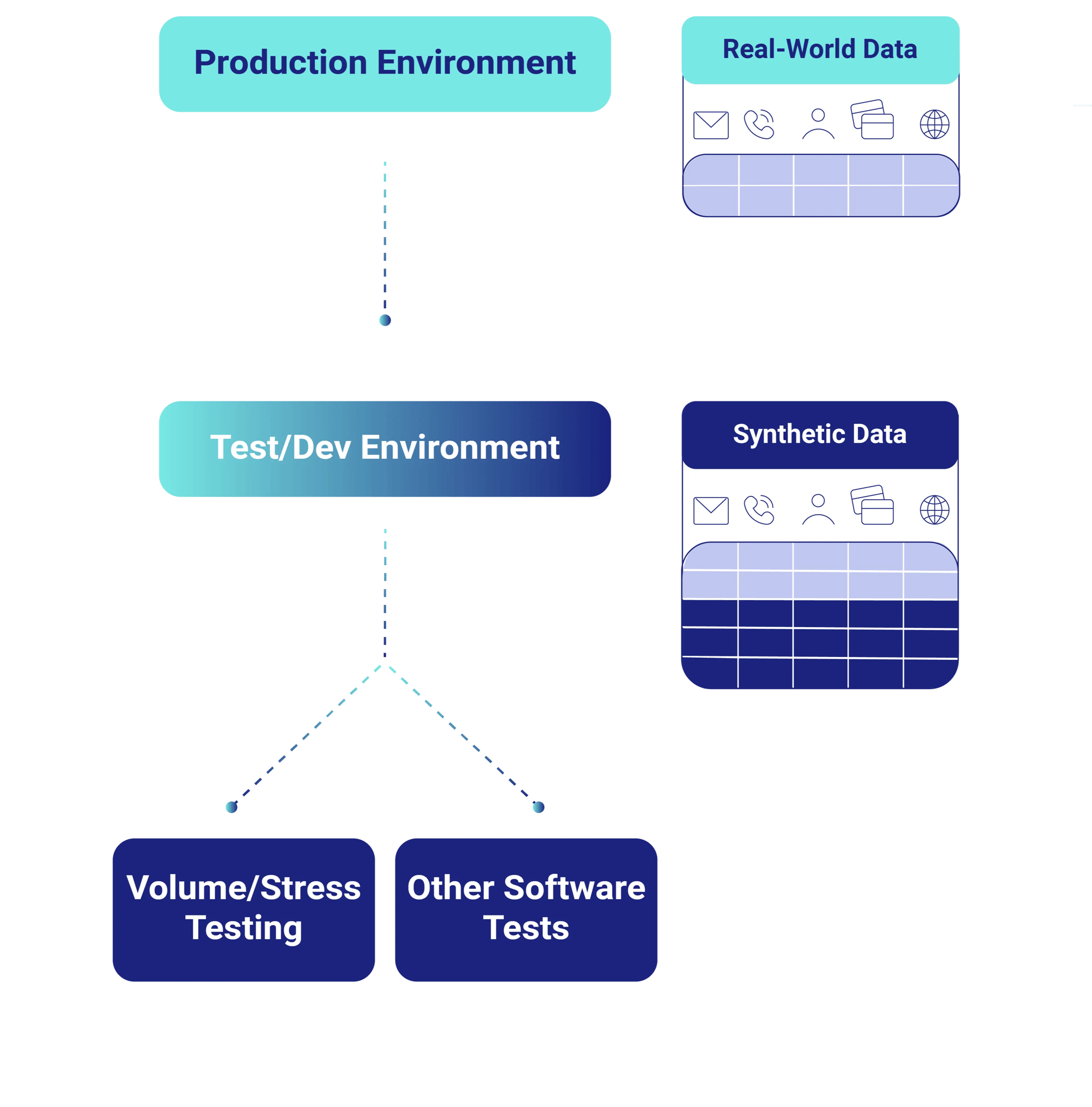Software TestingTransform Your Software Testing With Synthetic Data
Break through data limitations, enhance security, and ensure compliance in your software testing strategies.

Legacy Processes and Regulatory Challenges
Time constraints, lack of representative data, and reliance on outdated methods like legacy anonymization still cause issues in software testing.
Regulatory pressures, such as the ISO 27001:2022 standards and strict requirements to safeguard production environments, further complicate testing processes. Limited accessibility often results in extended approval cycles, causing testing delays and slowing software deployment.

Maximizing Testing Potential with Advanced Data Solutions
-
Overcome the limitations of scarce testing data by generating unlimited amounts of high-quality, representative datasets. Synthetic data empowers test engineers to create a wide range of test scenarios and edge cases, improving testing coverage and accuracy for complex systems and applications. By using predefined algorithms and rules, synthetic data ensures consistent data and minimizes errors, preserving sensitive information and refining accuracy in test results.
-
Synthetic data speeds up testing cycles by eliminating the manual collection or creation of real-world test data. It allows for more frequent and efficient testing processes, reducing the overall time and effort required for software development. As a result, organizations can deliver quality products faster, gaining a competitive edge.
-
Storing and managing large amounts of real-world data for testing purposes is costly. With synthetic data, there is no need for expensive storage solutions or constantly updating datasets. This results in significant cost savings for organizations while providing top-tier testing data quality.
-
Stricter data privacy regulations and concerns about data breaches have made data security a top concern for organizations. Synthetic data mitigates the risk of exposure and potential consequences of using sensitive or personal data in testing. It enables secure sharing of test environments with third-party vendors or partners while maintaining data privacy.
Overcome the limitations of scarce testing data by generating unlimited amounts of high-quality, representative datasets. Synthetic data empowers test engineers to create a wide range of test scenarios and edge cases, improving testing coverage and accuracy for complex systems and applications. By using predefined algorithms and rules, synthetic data ensures consistent data and minimizes errors, preserving sensitive information and refining accuracy in test results.
Synthetic data speeds up testing cycles by eliminating the manual collection or creation of real-world test data. It allows for more frequent and efficient testing processes, reducing the overall time and effort required for software development. As a result, organizations can deliver quality products faster, gaining a competitive edge.
Storing and managing large amounts of real-world data for testing purposes is costly. With synthetic data, there is no need for expensive storage solutions or constantly updating datasets. This results in significant cost savings for organizations while providing top-tier testing data quality.
Stricter data privacy regulations and concerns about data breaches have made data security a top concern for organizations. Synthetic data mitigates the risk of exposure and potential consequences of using sensitive or personal data in testing. It enables secure sharing of test environments with third-party vendors or partners while maintaining data privacy.
Unlocking Business Value with Synthetic Data
Leveraging synthetic data in software testing can generate substantial annual savings for enterprises implementing LLM-based customer support software.
This significant cost-saving impact is achieved through faster approvals and access to better data, optimizing software testing processes. By expediting the deployment timeline, organizations can gain a competitive edge and secure enhanced software testing outcomes.

Syntheticus® Is Trusted by Leading Enterprises and Scale-Ups















Ready to Explore the Power of Synthetic Data for Software Testing?
Sign up for a free demo and discover how synthetic data can enhance your software testing processes while ensuring data security and compliance.